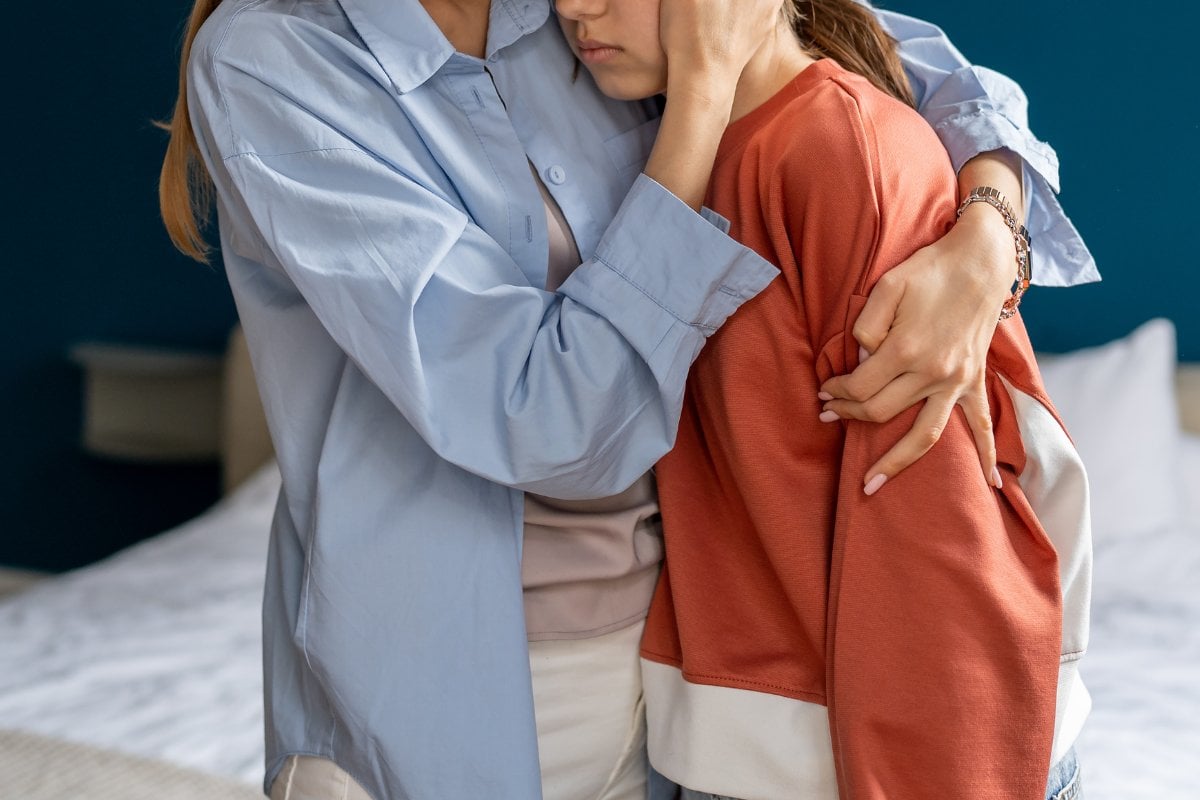
Warning: This story includes descriptions of domestic violence.
There's a reason why *Lisa continues to share her story of escaping violence. She feels "indebted in a way", forever grateful to those who helped her start again.
You see, seven years ago Lisa's life looked utterly different. She felt fear for herself and her kids' wellbeing. She felt she had to keep her then husband's abusive nature a secret to avoid shame, embarrassment and judgement from others. She also hadn't realised that what she and her kids were enduring was domestic and family violence.
***
Lisa met her ex husband at a bar. He was charming though slightly aloof. Initially, things were great, though with the understanding she has now, Lisa believes there was love bombing at play.
Then the arguments increased. So too did his "pernicious behaviour", with Lisa telling Mamamia he was "very good at manipulating a conversation or argument, and his anger levels became worse as the years went on."
Two years into their relationship, the pair wed. They were married for 28 years. Lisa says it took time for his behaviour to turn threatening, and even physically violent.
"His abuse was a slow burn for many years. He wanted to make sure that I was never going to be able to leave. His controlling and intimidating behaviour to the kids scared me, especially when there was an escalation in abuse towards the children," says Lisa.
There was one incident that was particularly disturbing.
